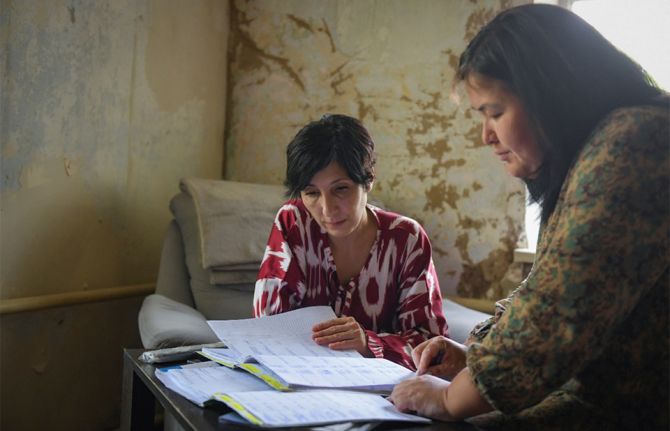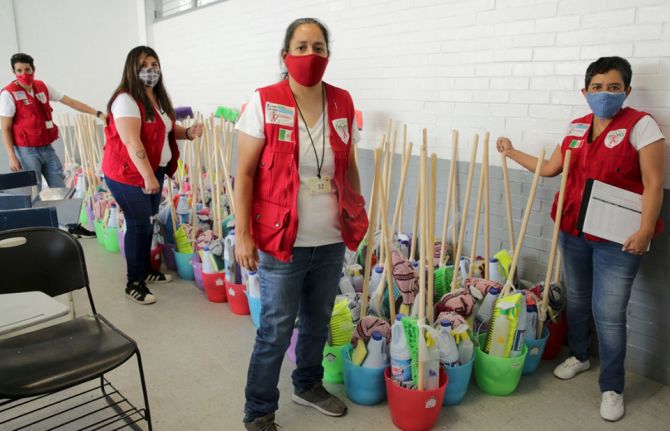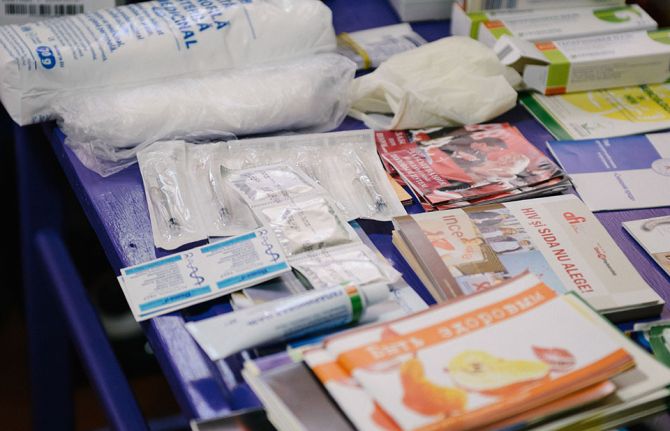
Feature Story
UN Office on Drugs and Crime tackles HIV in prisons
08 December 2009
08 December 2009 08 December 2009
In most countries around the world HIV prevalence is higher among prisoners than in the general population. This is due to a number of factors including the relative lack of knowledge about HIV among prisoners, lack of access to protective measures, often violent conditions, overcrowding and inadequate health services.
To help tackle this situation in Africa, the United Nations Office on Drugs and Crime (UNODC), in partnership with WHO, the World Bank and UNAIDS has launched the African HIV in Prisons Partnership Network (AHPPN).
The initiative was announced at the east and southern Africa consultation which took place on 17 and 18 November 2009. The consultation brought together representatives from prison authorities, civil society, national AIDS councils, health, research and academic institutions, as well as United Nations agencies from 16 African countries.
Responding to the situation in prisons is not only of the essential for those incarcerated but for society as a whole. When released back into the community prisoners who have been vulnerable to HIV infection while in prison may then go on to engage in high risk behaviours outside of prison.
Despite such challenges, strategies to address HIV in prisons are often isolated and not well integrated into national AIDS plans and programmes.
The African HIV in Prisons Partnership Network will support efforts to mount effective, human rights-based responses to HIV in Africa’s prisons. It also hopes to facilitate knowledge sharing and the forging of alliances between a range of partners to encourage a coherent, broad and holistic approach.
We need more comprehensive information about the HIV situation in prisons across Africa...This information should inform the development of evidence-based comprehensive, HIV prevention, care, treatment and support services for men, women and juveniles in prisons and ex-prisoners; without discrimination
Ms. Elizabeth Mataka, the United Nations Secretary-General’s Special Envoy for AIDS in Africa
Championing this need for coordination, Ms. Elizabeth Mataka, the United Nations Secretary-General’s Special Envoy for AIDS in Africa and keynote speaker at the launch noted, “We cannot work in silos…we need everyone, from government officials, National AIDS Councils, law enforcement agencies, civil society organisations, prisoners and former prisoners, to truly reach the objectives of universal access to HIV prevention, treatment, care and support for this particular sub-population, but also with benefits for society-at-large.”
The network will also ensure that existing gaps in knowledge about the true nature and extent of HIV in prison settings are addressed and that the response is based on sound data and evidence.
Ms Mataka added, “We need more comprehensive information about the HIV situation in prisons across Africa...This information should inform the development of evidence-based comprehensive, HIV prevention, care, treatment and support services for men, women and juveniles in prisons and ex-prisoners; without discrimination. These services, it goes without saying, should be of the same quality and standard, as for non-prisoners; and address linkages with the broader community.”
The remit of the African HIV in Prisons Partnership Network is wide and will focus not only on HIV but on tuberculosis, mental health, drug use and prison overcrowding. The network will also provide technical support to member states.
A regional declaration of commitment on AIDS in prisons was adopted at the consultation forum. Informed by the socio-cultural and economic context in Africa, the declaration will be used as a framework for encouraging an effective response to HIV in the region’s prisons.
The Network, which will be supported financially by the Swedish/Norwegian HIV/AIDS Team for Africa, has created a website to share ideas and experiences across the widest possible forum. The site can be accessed at www.ahppn.com.
UN Office on Drugs and Crime tackles HIV in priso
Cosponsors:
Feature stories:
UNODC and Brazil promote action on AIDS in prison settings (22 April 2009)
ICASA 2008: HIV in prison settings
(06 December 2008)
Contact:
Kevin Town
UNODC Southern Africa
Tel: +27-12-342-2424
E-mail: kevin.town@unodc.org
Publications:
HIV and prisons in sub-Saharan Africa (pdf, 2.12 Mb.)



